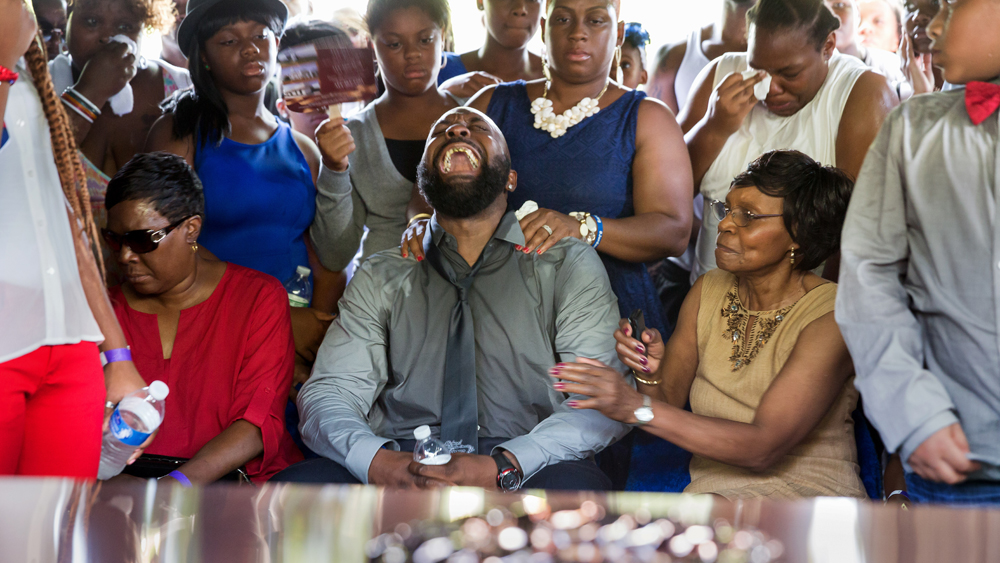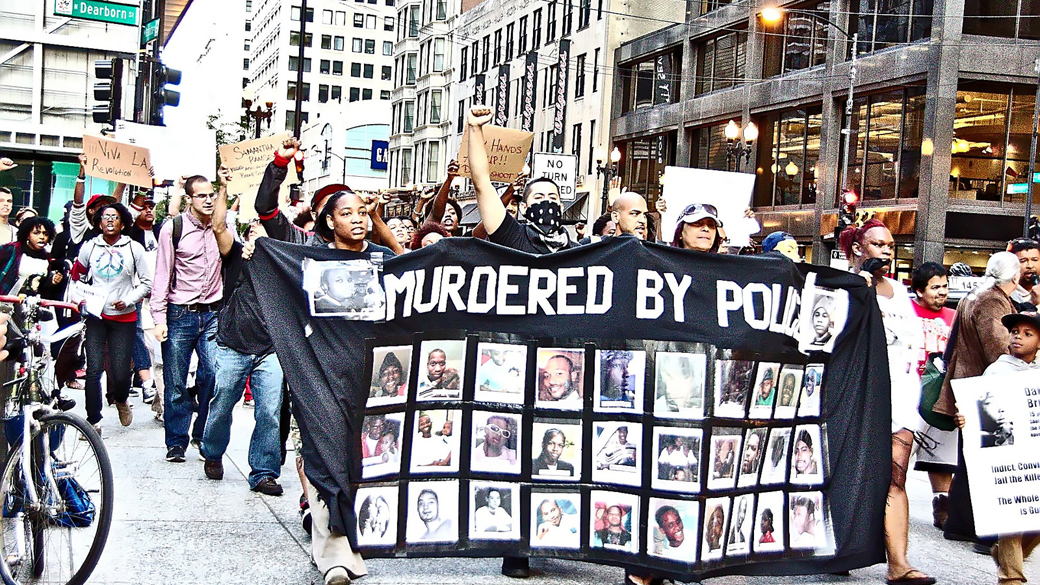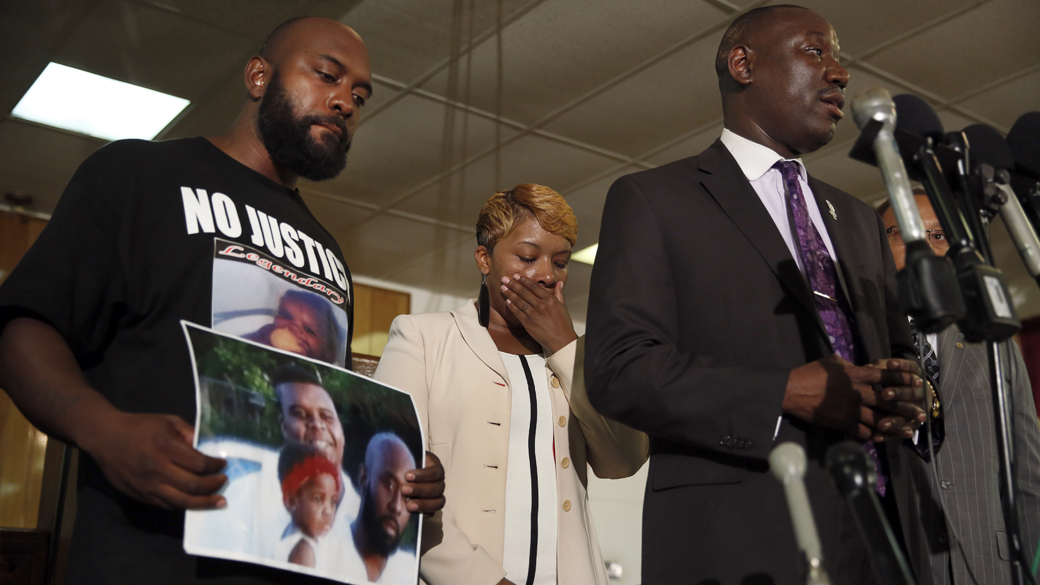This is the first in a series of posts that Ian Haney López, the author of Dog Whistle Politics: How Coded Racial Appeals Have Reinvented Racism and Wrecked the Middle Class, will be writing in the weeks leading up to the November election.

Michael Brown Sr., yells out as the casket is lowered during the funeral service for his son Michael Brown in Normandy, Mo., Monday, Aug. 25, 2014. Hundreds of people gathered to say goodbye to Michael Brown, the 18-year-old shot and killed Aug. 9 in a confrontation with a police officer that fueled almost two weeks of street protests. (AP Photo/New York Times, Richard Perry, Pool) Click to expand image.
For a moment, Monday’s funeral for Michael Brown, the young black man shot and killed by a white police officer in Ferguson, Missouri, pulled our attention away from the protests and militarized police response and back to the body on the street. The police left Michael there in the middle of the road, under the midday sky, for over four hours, blood seeping from his head in a drying rivulet on the asphalt. “To have that boy lying there, like nobody cared about him. Like he didn’t have any loved ones, like his life value didn’t matter,” Rev. Al Sharpton reminded the funeral mourners.
This point must not be taken lightly or shrugged off because there is no clear evidence that malevolence drove the officer who killed Michael or the police who rallied around their colleague. We tend to talk about racism in simplistic terms as the hateful actions of (potential) Klan members, while dismissing just about everything else as, at worst, the universally shared tendency to be more comfortable with one’s own. In so doing, we blind ourselves to how racism justifies the inequalities of power and position that exist in society with narratives of unbridgeable difference, of fixed and inherent superiority and inferiority. Racism isn’t simply bigotry; at root, it’s about dignity and denigration.
After weeks of protest, and after national and even presidential attention, many are wondering whether this latest police shooting of an unarmed African-American will evolve into a movement for reform, or instead fade from memory as another moment of transient outrage. Attending Michael’s funeral were civil rights icons Jesse Jackson and Martin Luther King III, as well as family members of Emmett Till, the young boy killed almost 60 years ago in a lynching that helped spark the modern civil rights movement. They among many others aspire to transform Michael’s death into tangible improvements in policing and in racial justice more broadly.

The National Moment of Silence held in Chicago at Daley Plaza earlier this month to reflect on the death of Michael Brown. (Credit: Mikasi/Flickr/CC 2.0)
But no reform will be possible unless and until Michael Brown is re-humanized. This is the glimmer of hope that flickers more brightly than usual, if still too faintly, in the nation’s collective response to Ferguson. Although a sharp racial divide exists, with whites more likely than blacks to see Michael’s killing as justified, whites who view the shooting as unjustified nevertheless outnumber apologists for the police by 50 percent. Perhaps the slew of recent and highly publicized killings of unarmed blacks by white police officers and armed citizens — from Oscar Grant in California to Trayvon Martin in Florida, Renisha McBride in Michigan to Eric Garner in New York — is slowly pushing into the national conscience the essential truth that racial violence kills people.

Lesley McSpadden, center, and Michael Brown Sr., left, the parents of Michael Brown, listen as attorney Benjamin Crump speaks during a news conference in Jennings, Missouri on Aug. 11, 2014. (AP Photo/Jeff Roberson, File)
And yet, we must not lose sight of Michael Brown’s body. Dog whistling may hurt almost all Americans, but its basic technique is to dehumanize minorities, scaring voters with spectral images of welfare cheats, illegal aliens, invading hordes, potential terrorists and, perhaps especially, black men as menacing criminals. Race baiting succeeds — and it does succeed, remaking American politics over the last five decades and continuing at full throttle today — because so many voters see some people as fully human and worthy of care and respect, and others as something less, warranting fear, rejection and even violent repression. In future posts, I’ll diagram the intricacies of racial pandering leading up to this November’s election and sketch various potential solutions. Whatever the complications, however, Michael’s death teaches a simple, fundamental lesson: progress for all depends on recognizing our shared humanity. Look again at that abandoned body, America, and see a human being.


